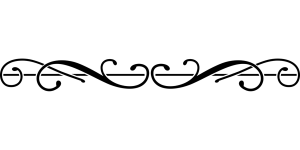


Walter Chalmers Smith (1824 – 1908)
Repertoire:
Immortal, Invisible
How do you express the inexpressible mystery of the Creator whose name could not be uttered in the Hebrew Scriptures except as the self-described “I AM?” How do you put into words that which cannot be known or is beyond all words? Walter Chalmers Smith (1824-1908) attempted this in his classic hymn, “Immortal, Invisible.”
This hymn comes from his volume, Hymns of Christ and Christian Life, published in 1867. Hymn Historian Robert McCutchan states that Smith’s hymns have a “richness of thought and a vigor of expression,” and this one is no exception. A word of warning: the words in this hymn run counter to the casual prayers we sometimes hear and sometimes pray.
The opening line of Smith’s hymn is based upon the Apostle Paul’s words recorded in 1st Timothy 1:17 (KJV), “Now unto the King eternal, immortal, invisible, the only wise God, be honor and glory for ever and ever. Amen.” Smith uses this verse to identify the One the hymn is intended to praise, not some mere mortal or lesser god, but the Eternal, Almighty, Ever Victorious God! He who alone possesses and can be described with these qualities and yet is indescribable!
As the Apostle Paul continues, “Which in his times he shall shew, who is the blessed and only Potentate, the King of kings and Lord of lords, who only hath immortality, dwelling in the light which no man can approach unto; whom no man hath seen, nor can see: to whom be honor and power everlasting. Amen.” (1st Tim. 6:15-16). God in His essence is invisible and, in Smith’s word, “inaccessible” to us. But by His incarnation, God the Son was translated into a form that human beings could see, touch, and know. Even then, when He revealed Himself in His glory on the Damascus Road, Saul (later called Paul) was struck blind at the glorious sight.
He “only hath immortality” in the fact that immortality has always been, inherently, a part of His nature, while we as believers have immortality (everlasting life) given to us through faith in Christ (Jn. 3:16).
The eternal God is always at work (“He who keeps Israel shall neither slumber nor sleep,” Ps. 121:4). The phrases like “unresting, unhasting,” and “nor wanting nor wasting” are wonderful in their expression of God’s qualities. God is never in a hurry like we as His creations sometimes are. He is never caught off guard nor rushes frantically to catch up.
The Lord neither lacks nor does He waste anything. Even in His love towards us as His children we can say the same of personal experiences the Lord takes us through, and the difficulties He allows to touch our lives. He has a wise and loving purpose in such things and again it is the Apostle Paul, in the book of Romans, who reminds us that all will work for our good.
Smith also reminds us that God is the Source of all life. And while aging, corruption, and death are a fact of this mortal existence, God is utterly changeless in His nature and righteous character. “We blossom and flourish,” then “wither and perish,” but nothing like that touches the eternal God. He says, “I am the LORD, I change not;” (Malachi 3:6, KJV).
The original version in six stanzas appeared in his Hymns of Christ and the Christian Life (1867). After a number of revisions, the four-stanza version that we sing was included in The English Hymnal (1906).
Walter Chalmers Smith was born in Aberdeen, Scotland. His father, also Walter Smith, was a cabinet maker. Walter Chalmers attended Aberdeen Grammar School and was educated at the University at Aberdeen and then at New College, Edinburgh. He was ordained by the Scottish Church of Scotland but later, because of his personal convictions, he joined with the Free Church of Scotland. He pastored at several churches in London, Glasgow, and Edinburgh. In respect for his dedication and sacrifice, he was elected Moderator of the General Assembly in 1893 for the church’s 50th Jubilee celebration. He wrote a number of hymns, but this hymn is the only one in common use today. Smith died September 19, 1908, and is buried in Warriston Cemetery in Edinburgh.
Albert E. Bailey made this statement regarding the hymn: “One might say that the hymn is a rather florid attempt to express the inexpressible, and so rather a stimulus to the imagination than a clarifier of thought or an incentive to action. But no doubt our programs of public worship occasionally need hymns of this kind.” I say Amen to that!
Smith once wrote that his poetry was “the retreat of his nature from the burden of his labors.” He published several collections, including Hymns of Christ and the Christian Life (1876), from which this well-known hymn is taken.
Sources:
A Dictionary of Hymnology, John Julian, Dover Publications, NY, 1907
Our Hymnody, A Manual of the Methodist Hymnal, Robert McCutchan, Abingdon Press, NY, 1937
The Gospel in Hymns, Albert Edward Bailey, Charles Scribner’s Sons, New York, 1950
